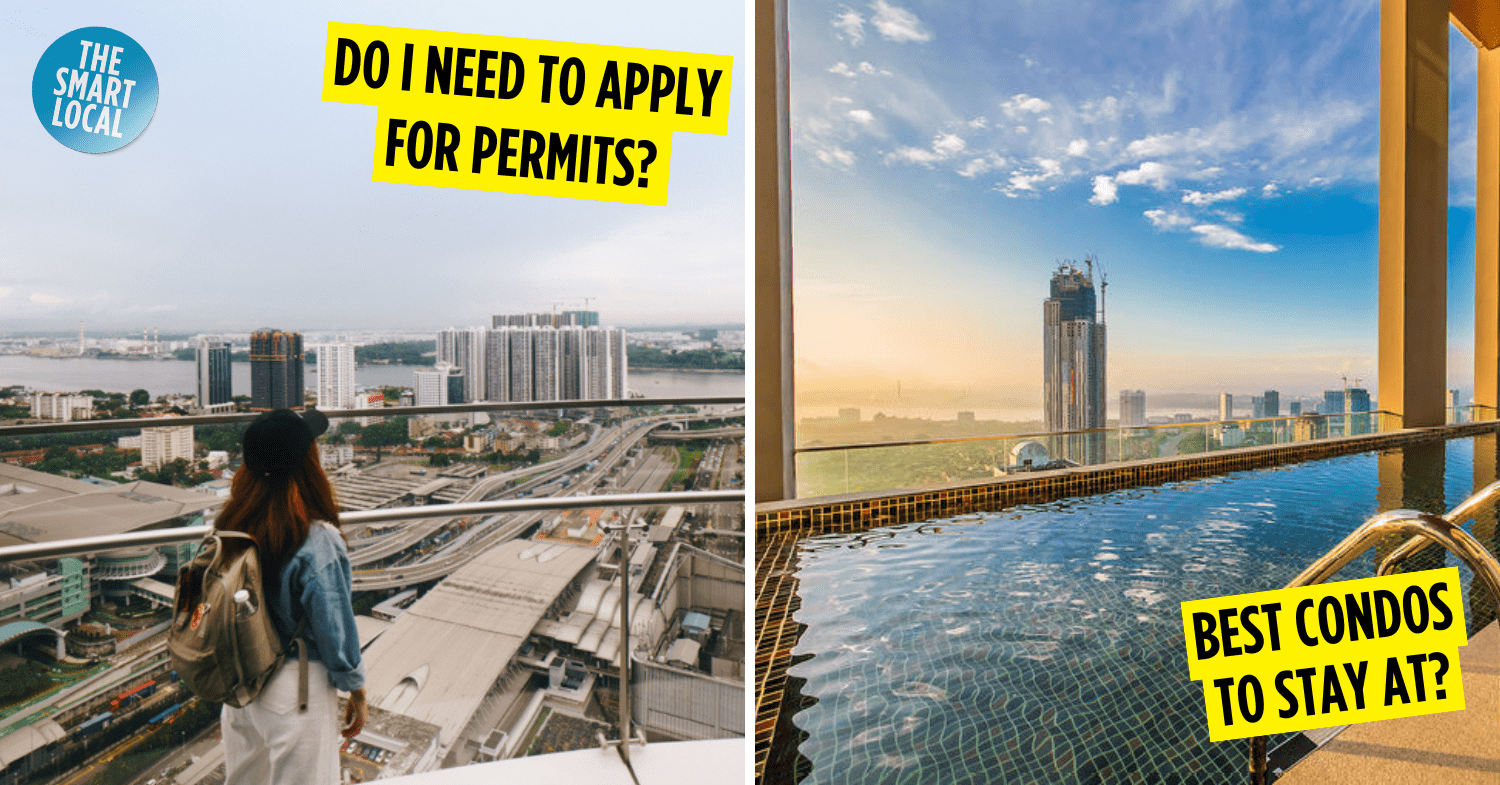How to live in JB as a Singaporean
Yeah, you’ve heard. GST has gone up by another 1% this year, inflation has peaked, and Singapore has been listed as one of the most expensive cities in the world. It’s no wonder that Singaporeans have been making mad dashes to JB every weekend – whether to stock up on groceries from supermarkets near the causeway or to get a cheap massage at JB spas.
So, it begs the question: how feasible would it be to live in JB as a Singaporean? The prospects of lower daily expenses and cheaper housing arrangements are attractive enough for one to wonder if it’s possible. If you’re thinking about it too, here’s a guide on how to go about it.
*All numbers quoted in this article are accurate as of January 2024.
Is it possible to live in JB and work in Singapore?
Let’s be real, we all want to be earning Singapore Dollars and spending Malaysian Ringgit. Win-win, right? This would mean we’d be looking at a scenario where we continue working under a company in Singapore while staying in JB. That would be the ideal case but the answer to whether that’s legally possible isn’t as straightforward.
It’s common knowledge that Singapore passport holders don’t require a visa to travel to Malaysia if they’re planning to stay less than 30 days. Anything more and you’ll need to exit the country, stay outside for at least 30 days, and then re-enter. For continuous stays of up to 90 days, one can apply for a single entry visa instead.
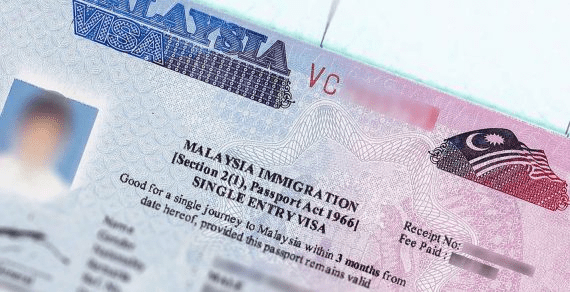
Image credit: Live in Malaysia
However, if you’re going in and out of Malaysia daily or making back-to-back visa runs, don’t be surprised if you are eventually denied entry. Such frequent entry and exits could raise alarm bells, causing Malaysian immigration officers to stop you for questioning if you don’t have an employment pass or multiple-entry visa.
The employment pass is only given to people working in Malaysia and themultiple-entry visa is for those entering the country solely for business purposes.
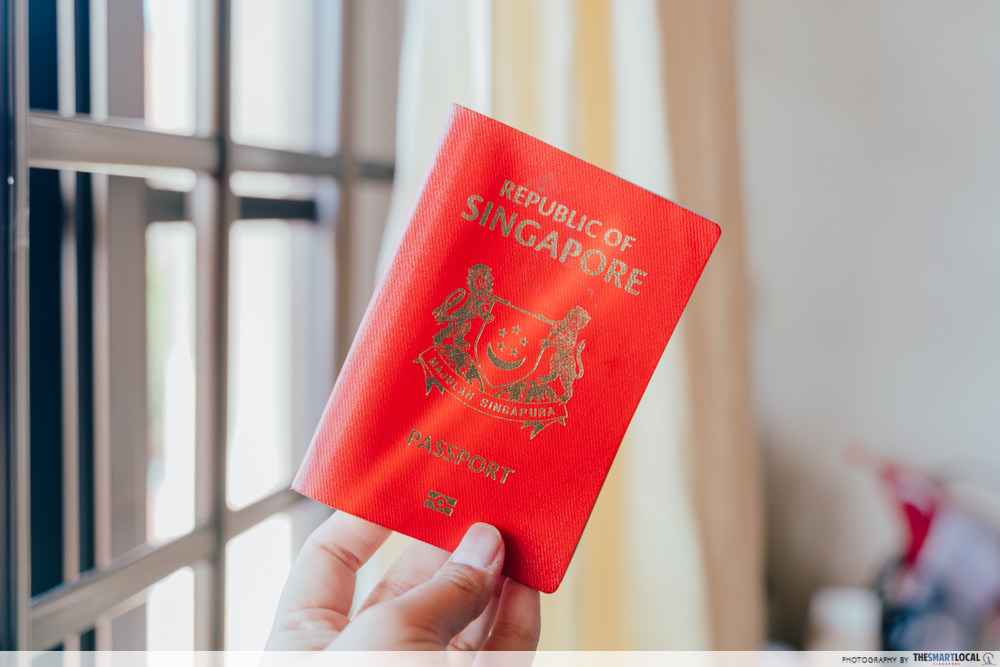
Now, you might be thinking, “What if I use the e-gates in Malaysia?” There’s still a likelihood that you could be barred from entering as the system will not register any valid visas after some time. In short, if you don’t have a valid long-term visa, you risk being blacklisted by Malaysian immigration.
So, for Singaporeans wanting to live in JB permanently, it’s not as simple as renting a place there and just crossing over daily. But there is a way to get around this legally, of course.
What is the Malaysia My Second Home (MM2H) programme?
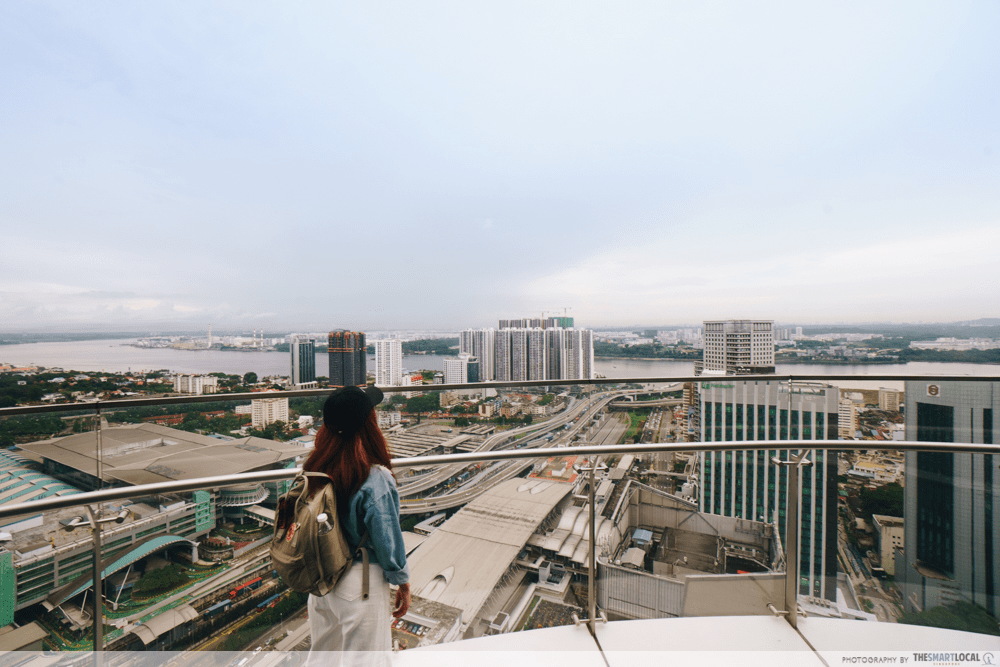
Assuming you intend to continue working in Singapore, the lawful way to become a JB resident is to apply for the MM2H programme. Here’s where things get a little technical, so bear with us. Recently reviewed in December 2023, MM2H is basically a scheme for foreigners to become long-term residents of Malaysia.
Under this programme, Singaporeans can stay in Malaysia permanently with a 5-10 year renewable pass which comes with a multiple entry visa. Of course, it means there’ll be no issues with entering and exiting as many times as you want. You also get to bring along your spouse and children below 21 years old, if any. Plus, it gives you rights to own Malaysian property.
Here’s the catch. It’s been designed to target wealthy folks so the financial criteria to be eligible for the programme could be a barrier, to say the least. There are 3 tiers and here are the criteria to obtain the MM2H visa for each tier:
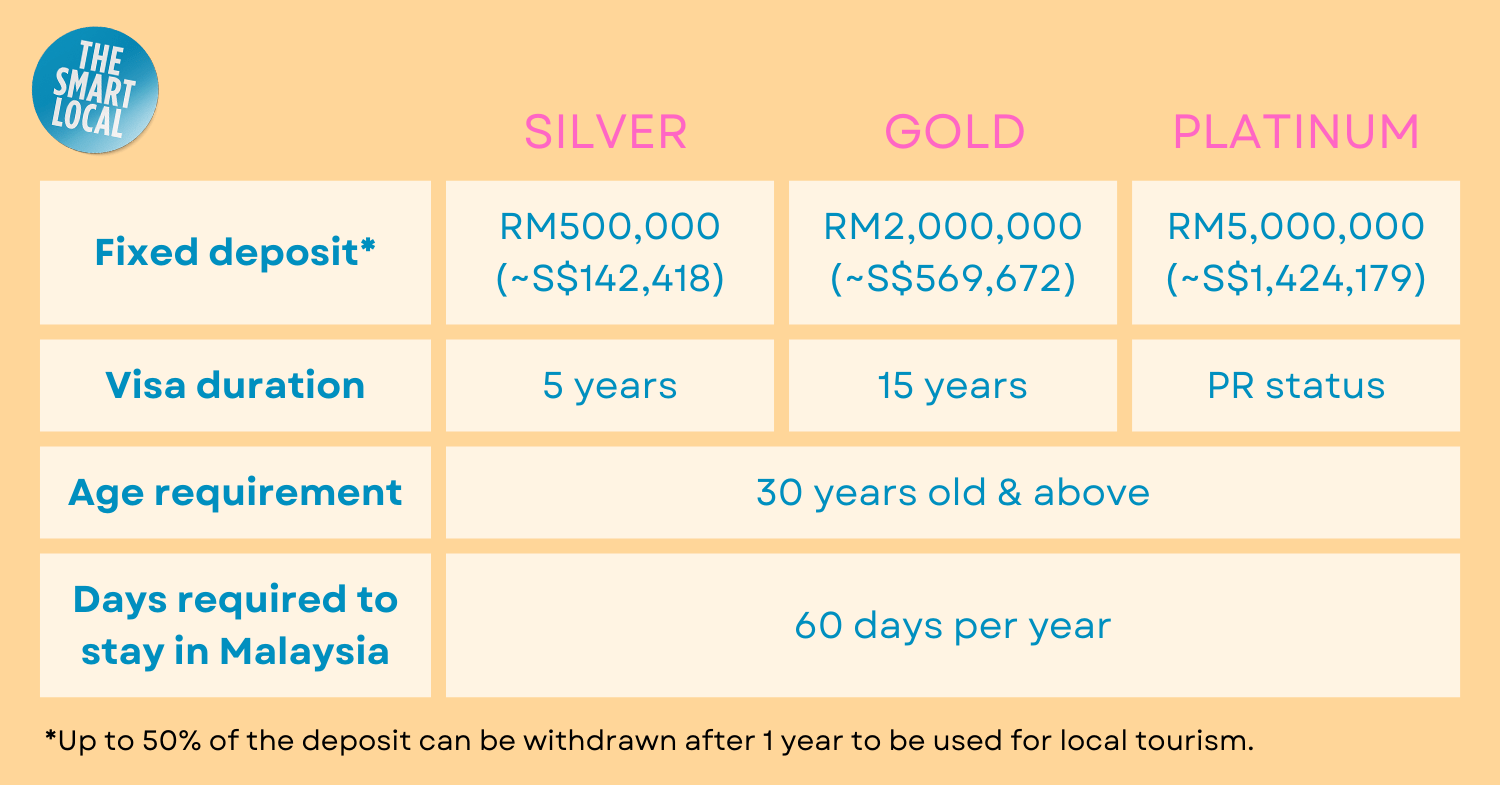
In addition, potential applicants will likely need to have a minimum offshore income and gross assets to qualify, but the exact numbers for these criteria are yet to be released by the officials. While not confirmed, there is general optimism that the revised criteria will make it easier even for middle-income earners to qualify.
The fixed deposit does seem like a large sum but rest assured that you’ll be able to withdraw up to 50% after a year. This can be used to offset purchases of property and medical bills.
How to apply to be a permanent resident in JB
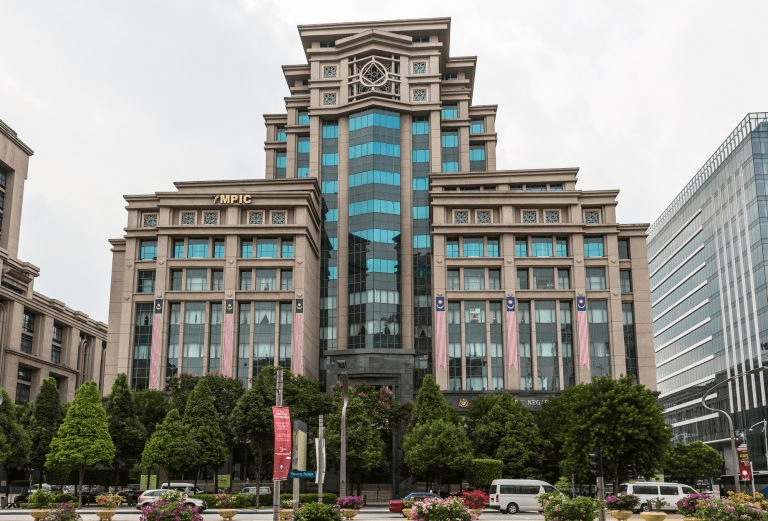
Immigration Department of Malaysia Headquarters.
Image credit: Immigration Department of Malaysia
Those who are in it for the long haul, can go a step further and think about applying for a Malaysian PR. This can only be done if you’ve lived in the country for at least 5 continuous years. Benefits include being able to retain Singapore citizenship while living in Malaysia indefinitely without any visa. PRs can also work, open a business, and own property.
There are a couple of scenarios that would make you eligible to apply for PR:
- You are working in Malaysia and have a valid working pass.
- You are married to a Malaysian citizen.
- You have invested S$2.7m to open a business in Malaysia.
- You are an expert or highly skilled professional whose services are deemed a valuable contribution to the country.
For more information, it’s best to consult with the High Commission of Malaysia, Singapore or Immigration Department of Malaysia.
How to rent an apartment in JB
Now that we’ve got all the legalities out of the way, here are the various housing options when staying in JB.
Short-term accommodation
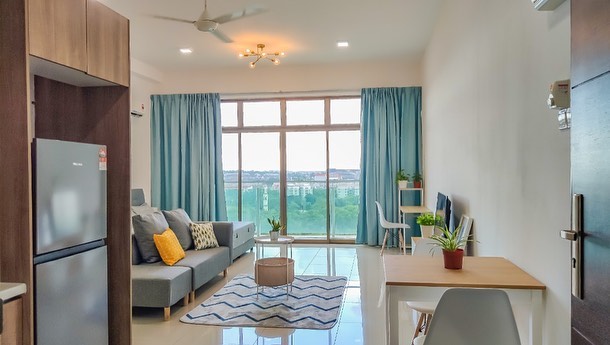
An entire rental unit at Palazio Mount Austin has been listed on Airbnb for S$32/night.
Image credit: @rumahsewakingproperty via Instagram
Most of us would prefer to have a trial period before committing to something. This is where short-term accommodation comes in. A quick browse through Airbnb room listings in JB will show options as low as S$15/night if you’re okay with staying with the hosts. If you need an entire flat to yourself, rates start at S$28/night.
Those who prefer service apartments and homestays with facilities such as gyms and swimming pools, will be able to find them from about S$160/week or S$570/month.
Long-term accommodation
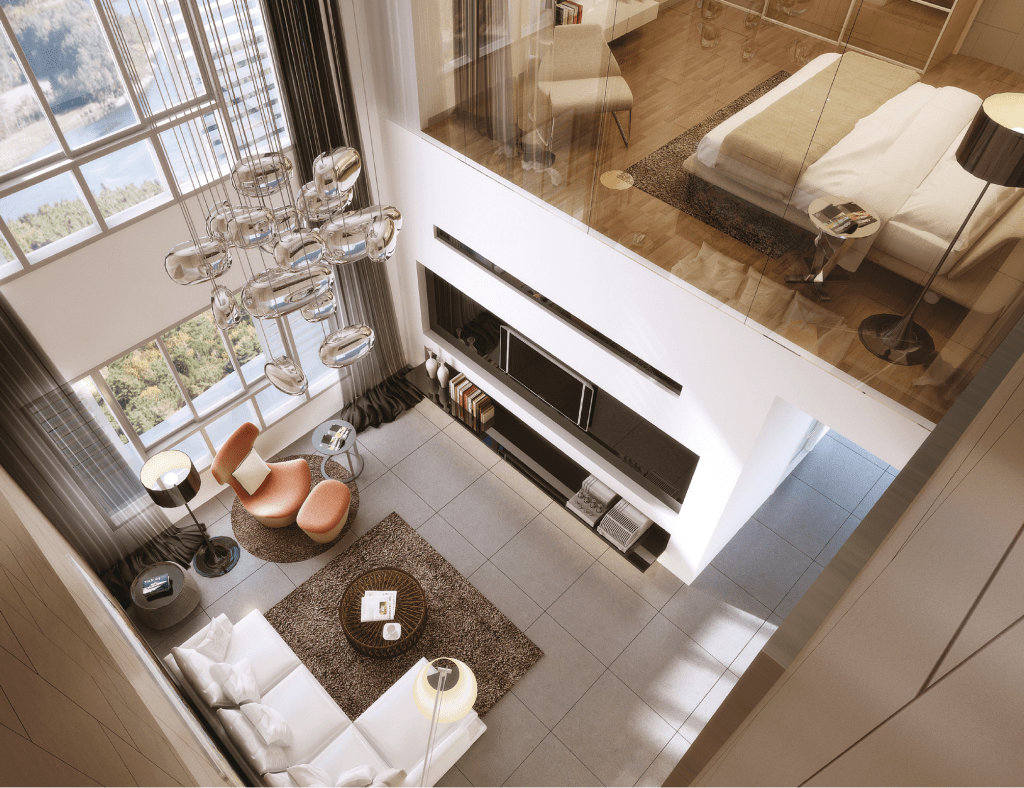
Tropicana Danga Bay residences are a 15-minute drive away from the Woodlands Checkpoint.
Image credit: Tropicana Danga Bay
Tried it and liked it or willing to take the plunge? Then you can look at rentals with 1-2 years lease agreements. In such a case, while no residency permit is required, some landlords may require proof that you won’t pick up and leave before the full term of tenancy.
Now, to answer the question on all our minds – are condo rental prices in Malaysia cheaper than in Singapore? That’s a resounding yes!
Studio apartments in JB can be rented for RM1,300-RM1,800/month (~S$372-S$516); 2-3 bedroom apartments are listed at RM1,700-RM3,000/month (~S$487-S$860); and for larger families or groups who are looking at 4-5 bedroom apartments, rentals are from RM7,000/month (~S$2,005).
Those who already own a property in Singapore can choose to rent out their homes while renting a property in JB. In this way, the rent collected from SG will more than cover the rent for the apartment in MY, leaving one with extra savings or disposable income.
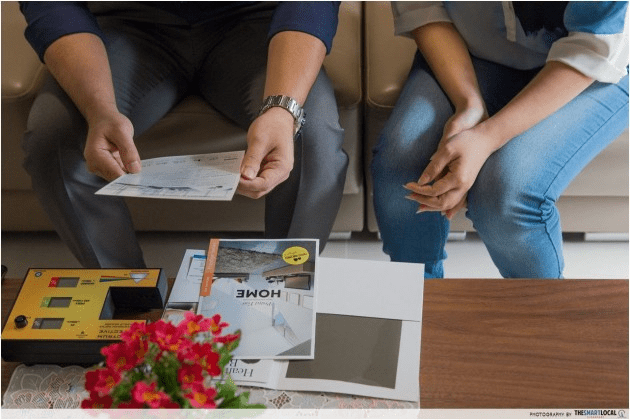
General rental agreements in Malaysia to take note of:
- 2 months’ notice is required to renew or end tenancy.
- Rent quoted doesn’t usually include utility bills.
- 2 months’ deposit is required to secure the apartment.
Tips when looking to rent in JB:
- Semi-furnished or unfurnished apartments have cheaper rents.
- Signing a longer lease term can help you negotiate for cheaper rent.
- Always view the unit in person before making a decision.
- Have a signed hard copy of the agreement before paying the deposit.
- Take photos of the condition of the house before moving in.
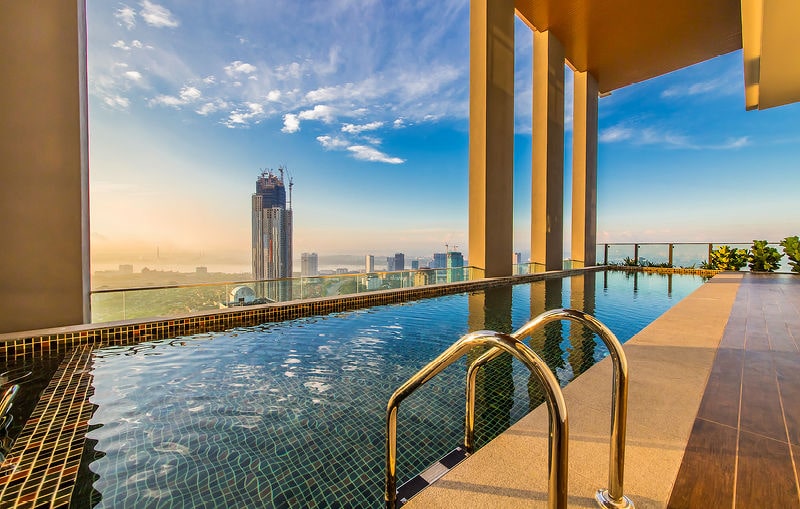
Setia Sky 88’s pool.
Image credit: S P Setia
Reputable property rental sites in Malaysia that you can check out:
Buying a house in JB
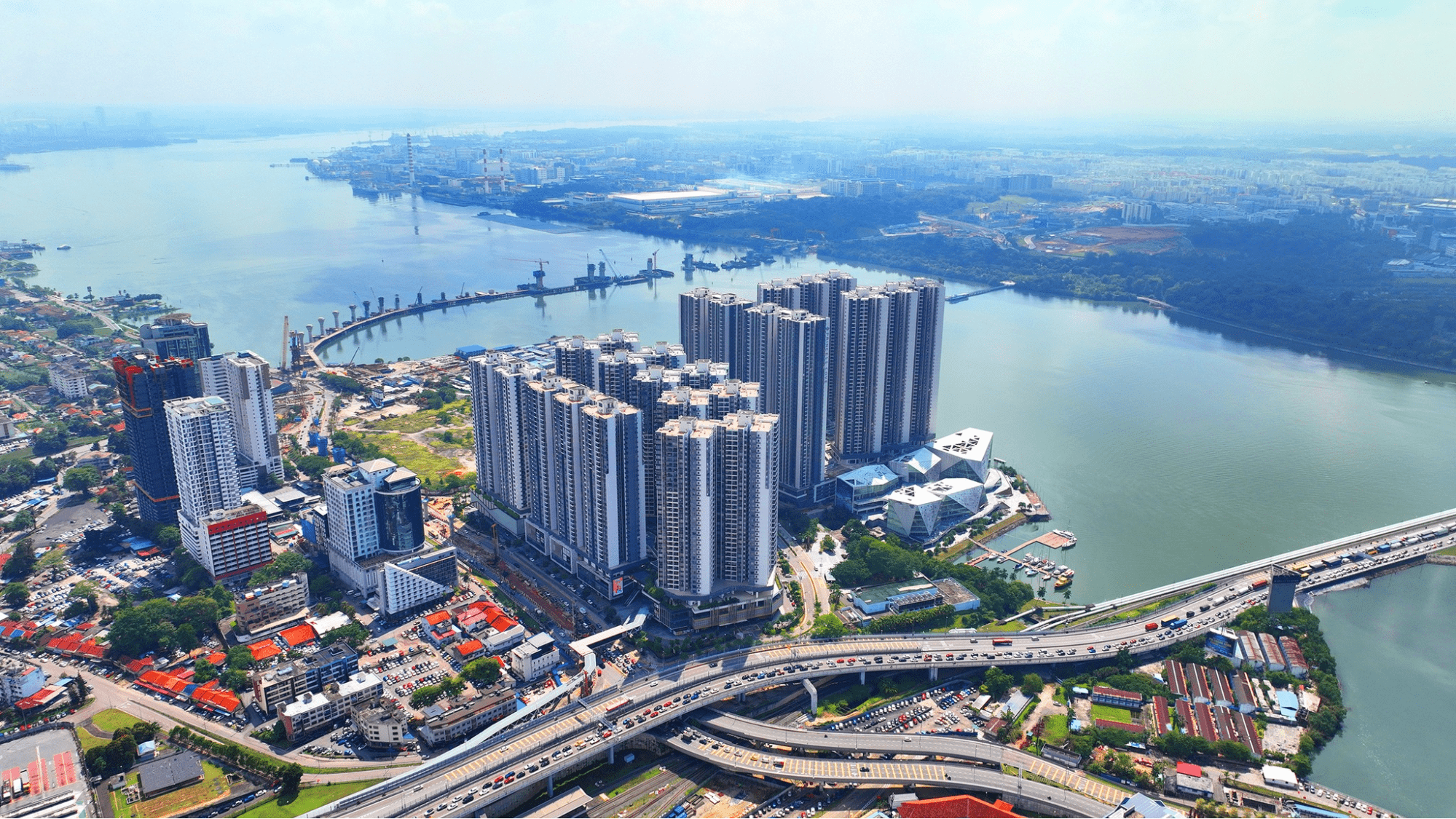
Image credit: R&F Princess Cove via Facebook
You’ve probably heard of Singaporeans who bought houses in JB whether for living, investment purposes, or as holiday homes. Purchasing a landed property or condo unit is definitely an option one can consider besides renting, but there are some rules to take note of.
As a Singaporean, to buy a landed property, the minimum spending is RM2 million (~S$570,000); while for high-rise properties, it is RM1 million (~S$285,000). With an MM2H visa, you may be eligible for discounts on certain property types. All foreigners also need to pay a stamp duty of 4%.
Also, if you’re already the proud owner of an HDB flat in Singapore, you’ll first need to complete the 5-year occupation period before purchasing a home in JB. Lastly, do note that you’ll be required to declare the ownership of foreign property which may affect future purchasing eligibility for HDBs in Singapore.
Best condos & neighbourhoods to stay at
You know the rates, you know the rules. So, what are some of the best places to stay in JB?
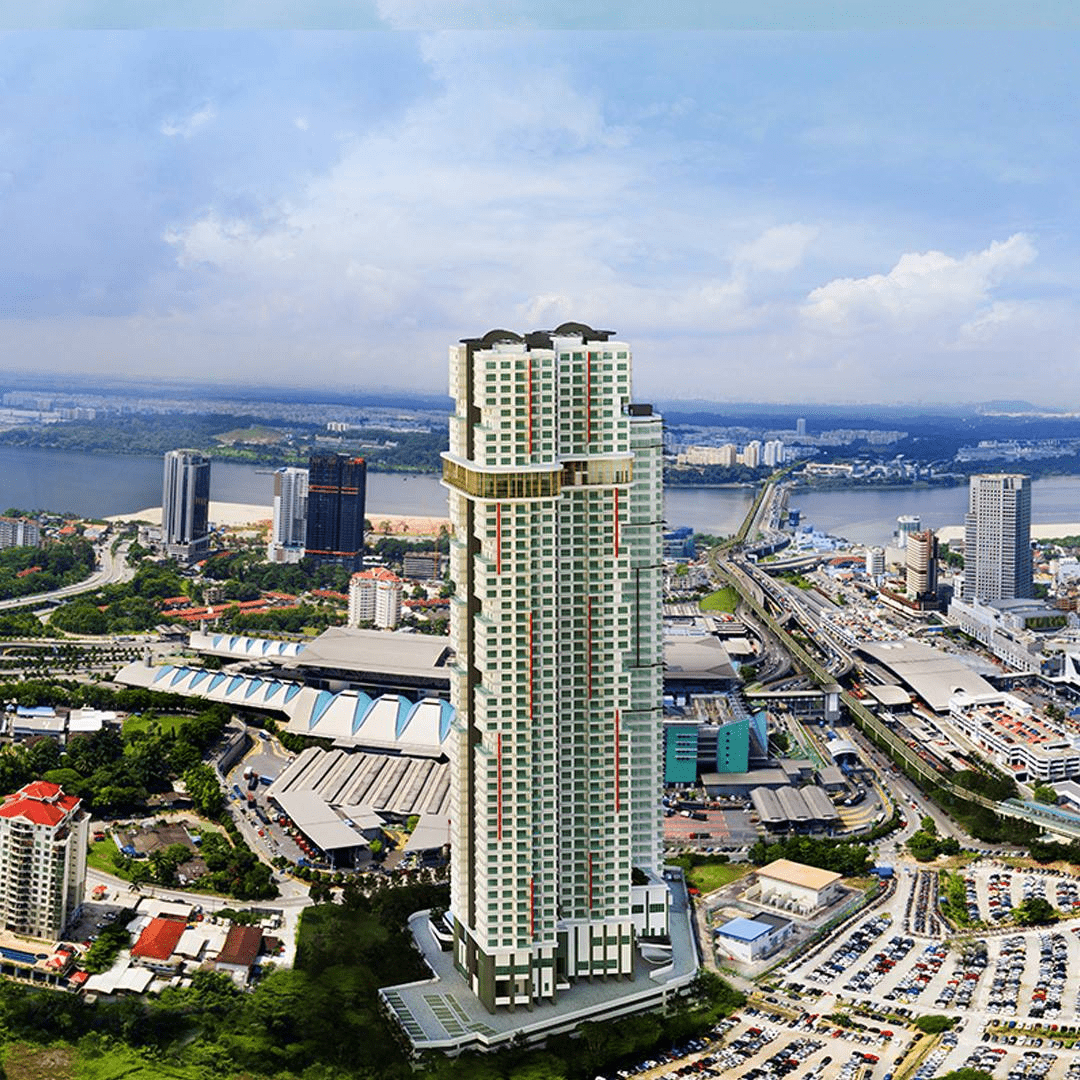
Image credit: TriTower Residence via Facebook
Those looking to stay as close to the motherland as possible, here are some condos near the JB causeway:
- TriTower Residence
- Skysuites @ Meldrum Hills
- Setia Sky88
- SKS Pavillion Residences
- R&F Princess Cove
- Country Garden Danga Bay
- Tropicana Danga Bay
- V @ SummerPlace
- The Straits View Condominium
- Palm Garden Condominium
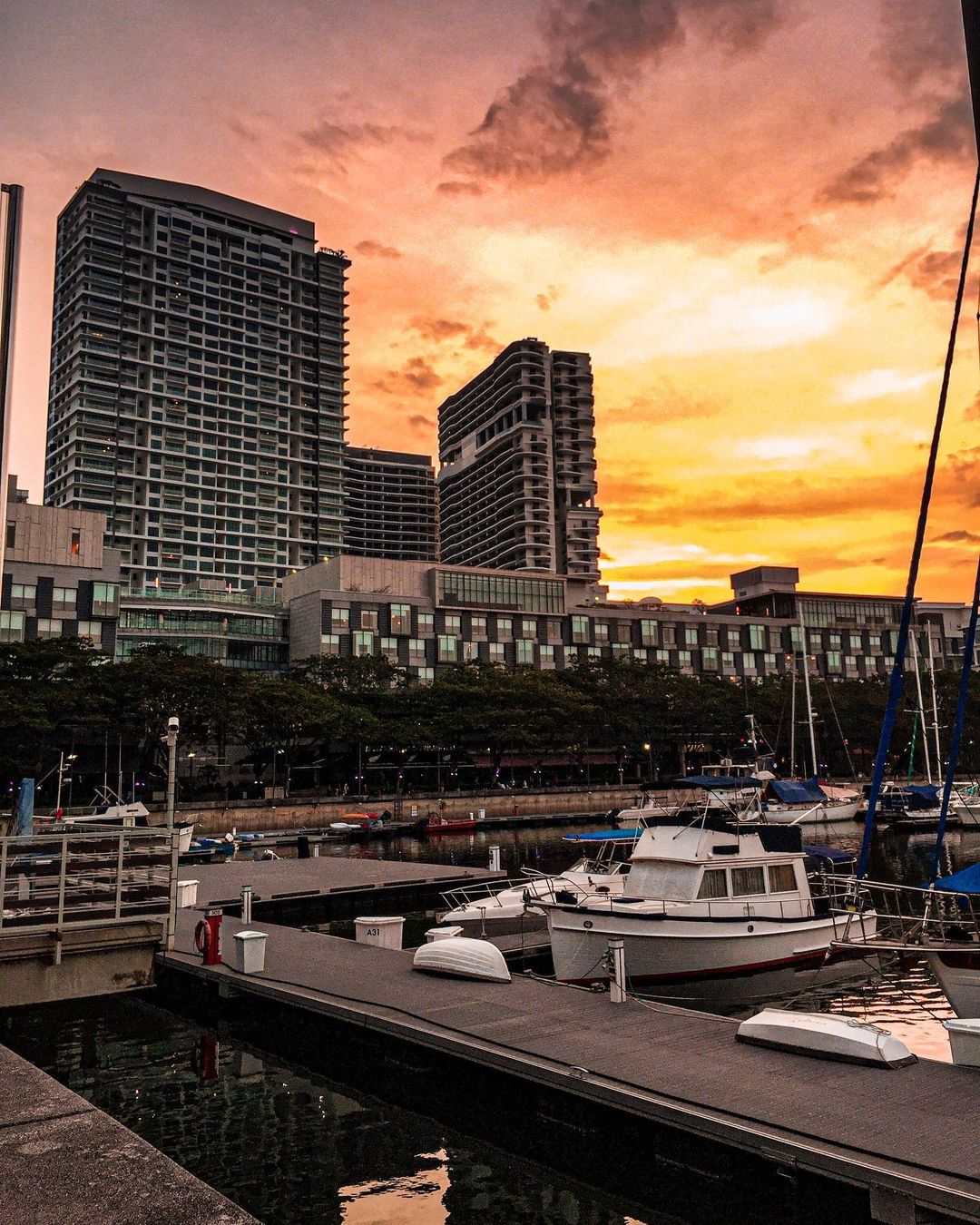
Puteri Harbour.
Image credit: @snappy_for_fun via Instagram
Further away from the immigration checkpoints are a couple of other neighbourhoods in JB worth considering too:
- Puteri Harbour: High-rise apartments along the waterfront.
- Skudai: Affordable accommodation near malls, supermarkets, restaurants, and medical facilities.
- Iskandar Puteri: Newly-built town with modern infrastructure that’s near LEGOLAND Malaysia.
- Taman Mount Austin: Area famous for restaurants, cafes, and bubble tea shops.
- Bandar Seri Alam: Close to parks and lakes to enjoy outdoor activities as well as near Kota Tinggi and Desaru.
- Taman Pelangi: Residential area with traditional shophouses, semi-d houses, and terraced houses.
How do I get around in JB
Folks who don’t drive can rely on the local bus services and Grab for public transport.
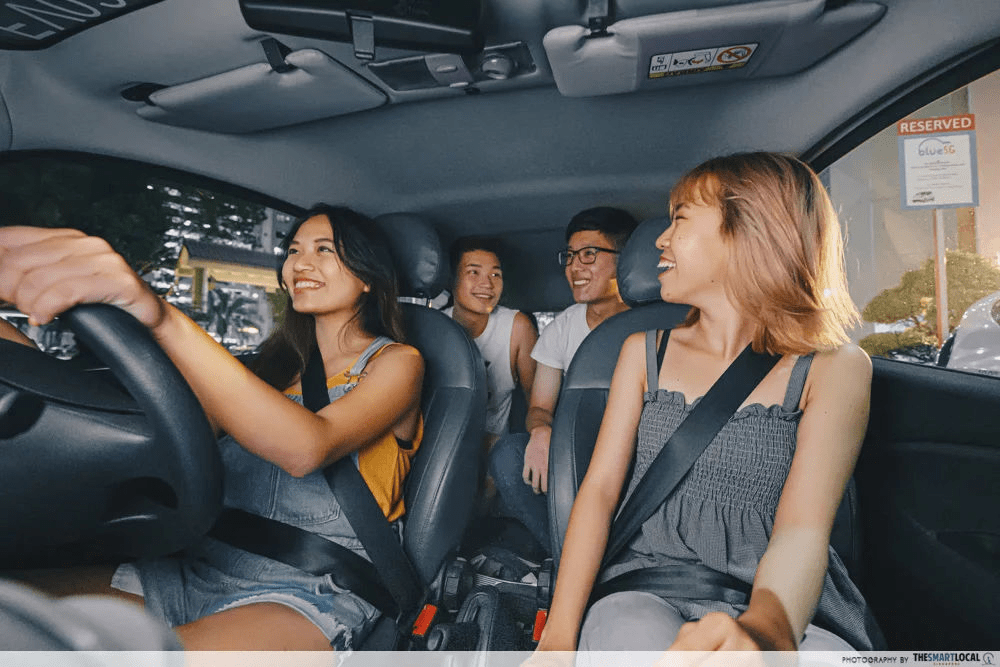
If you drive, you’ve got a lot more choice on how to get around town. On a tourist pass, you can drive your Singapore-registered in Malaysia for up to 90 days. Just bring along your Singapore driver’s licence and International Driving Permit. This will also allow you to rent a Malaysian-registered vehicle.
Staying anything longer than that will require you to convert your Singapore licence to a Malaysia driving licence. A valid visa showing that you are a temporary JB resident and the same documents mentioned above will need to be submitted to JPJ, the official Road Transport Department of Malaysia.
As you’re probably aware, buying a car in Malaysia is a lot cheaper too since there is no concept of COE bidding there. A brand new car such as Perodua Axia, will set you back only RM22,000 (~S$6,230). If you need to take out a loan, though, you’ll need to show proof of employment or income.
Getting healthcare & medical insurance in Malaysia
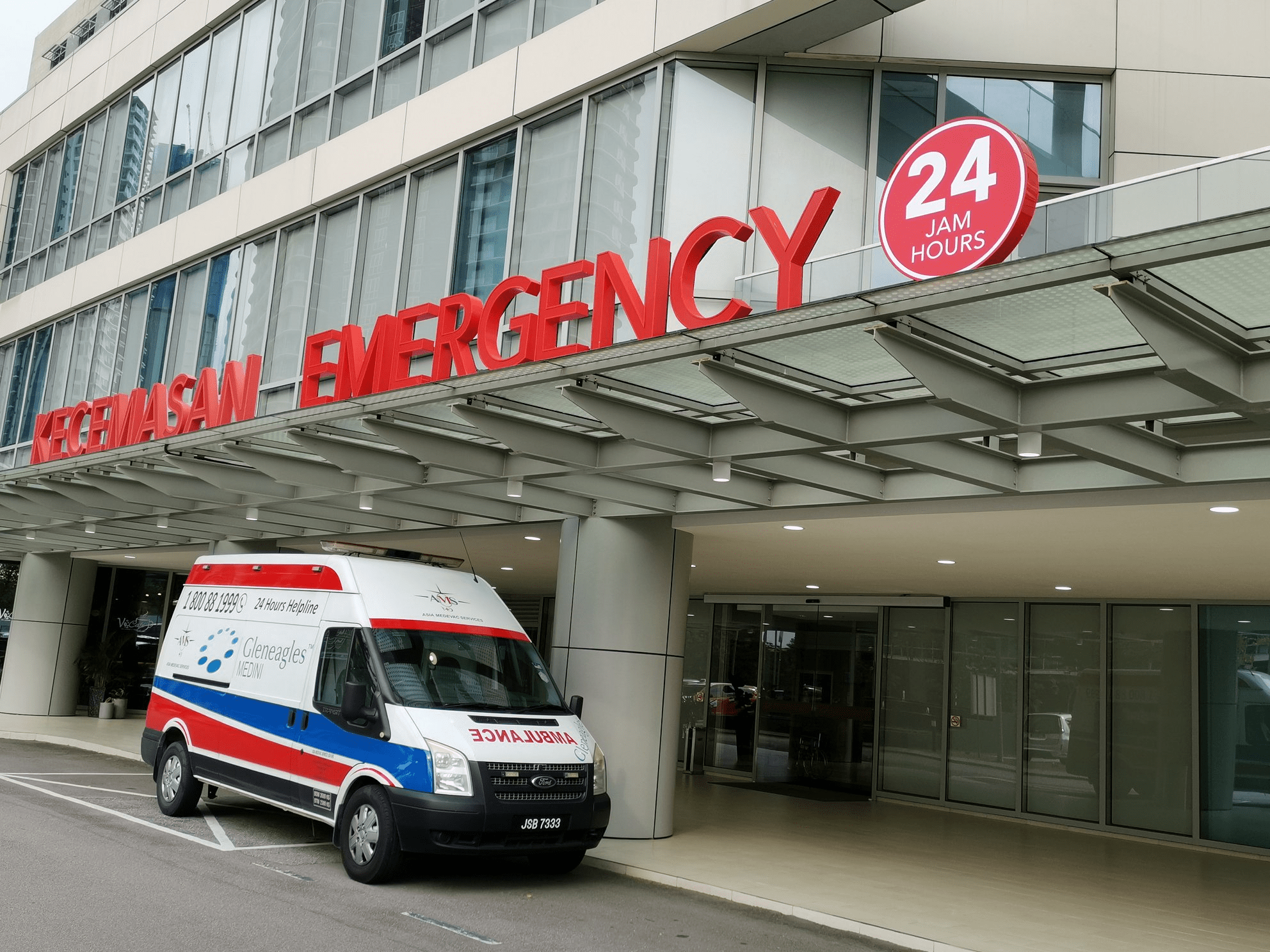
Health insurance is compulsory for all foreigners to be able to use private medical facilities in Malaysia.
Image credit: Gleneagles Hospital Medini Johor
First things first, Singaporeans can’t apply for any of the local government insurance schemes in Malaysia. However, we can use the public health facilities, but we won’t be enjoying any of the subsidised rates that locals pay.
So, unless you’re working in Malaysia and covered by your company’s medical insurance, you will need your own personal medical insurance plan. If you’re only staying there for a short while, a travel insurance plan with medical coverage will do. These usually cost around S$35.
Anything longer than 30 days is considered a long stay, in which case you’ll need to get an international or multi-country health insurance plan from Singapore. This usually costs S$500-S$800/year. Just ensure that Malaysia is on the list of countries covered by the policy.
Having said that, a trip down to the local pharmacy will easily tell you that medicines are generally cheaper in Malaysia. And some medications that often require prescriptions in Singapore can be bought over the counter.
Oh yes, if you were wondering, just like the emergency hotlines in Singapore, the number to dial in Malaysia for a crisis is 999.
So, can a Singaporean live in JB?
We’ve established that living in JB as a Singaporean isn’t exactly going to be a walk in the park. There are a multitude of factors to consider and even after you’ve decided to go ahead, there are numerous options to weigh.
As a way to summarise all that we’ve been talking about, we’ve put together the pros and cons of living in JB versus in Singapore:
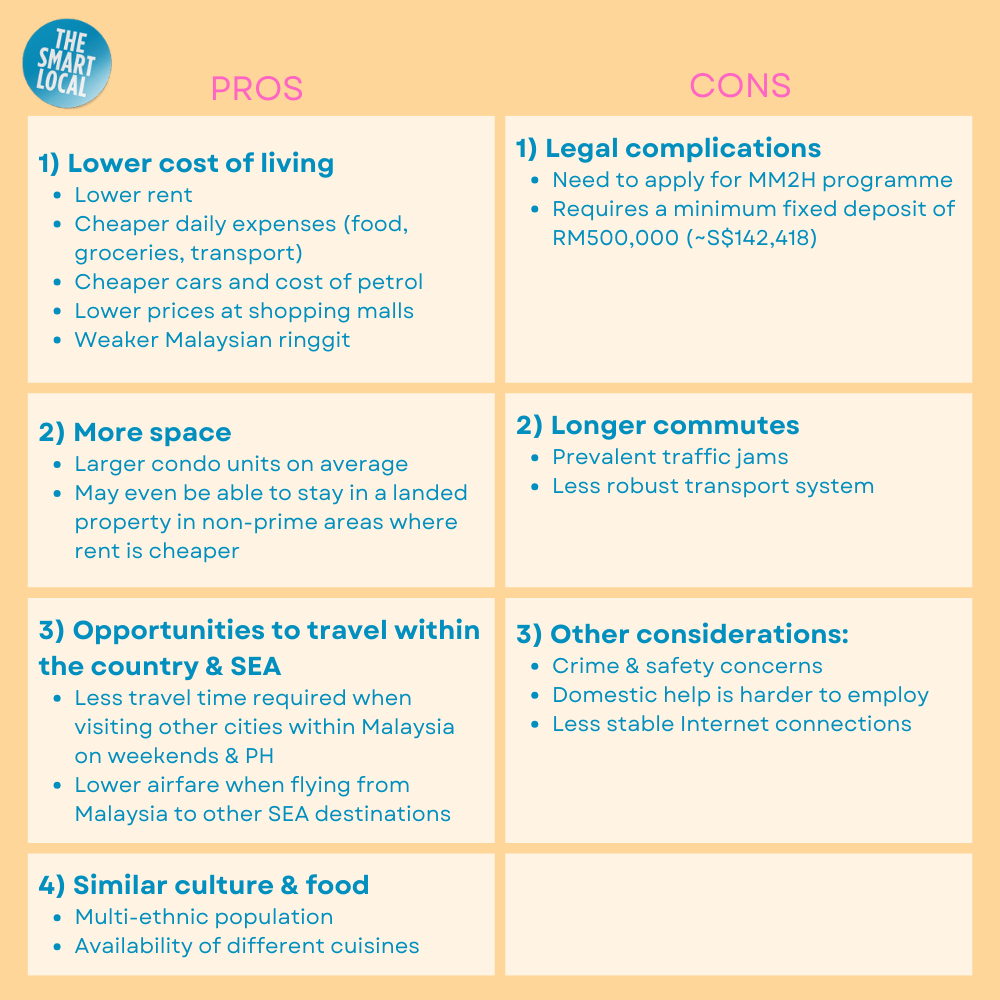
Given the conditions, it does seem like this situation would be more suitable for someone with full-time remote working arrangements or the flexibility of working from home. Anyone who needs to commute to Singapore daily for work will need to get used to long travelling times.
Something that may help is the Johor Bahru-Singapore Rapid Transit System (RTS) link that is set to be completed in 2027. This may help ease the congestion at customs and offer another way to cross the border on top of the current KTM Shuttle service.
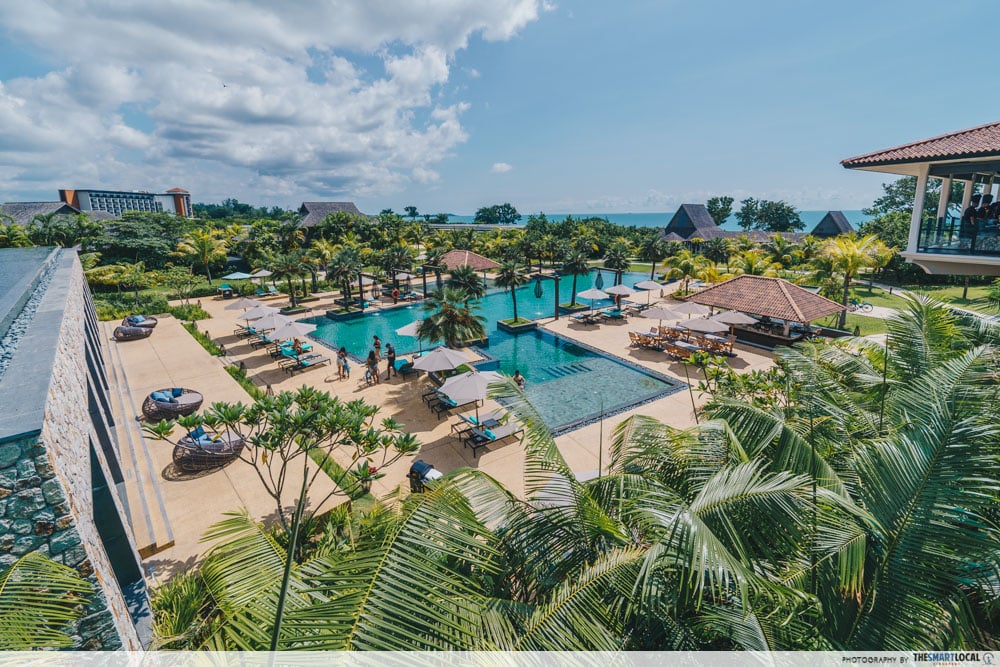
Anantara Desaru Coast Resort & Villas.
We also have to admit that the opportunity to travel within Malaysia easily over the weekends is pretty enticing. Sure, you could fly from Singapore but you won’t get to enjoy cheaper domestic flight rates or make last-minute plans with ease.
If you haven’t already, some cities you can explore within Malaysia include:
Before making a final decision, it’s best to talk with someone who has gone through the experience and be able to divulge further insights. There are numerous online forums where this topic is being discussed in detail, including FB groups for Singaporean expats in Malaysia.
It’s also best to take a good look at your financial situation to see if the difference in cost savings is worth the effort to make the shift. And there you have it, a complete guide to living in JB as a Singaporean.
More JB guides:
- Guide to travelling from Singapore to JB
- Things to do in JB near the Causeway
- New things to do in JB in 2024
- Best time to travel to JB
- Areas in JB to stay alert
Cover image adapted from: S P Setia
